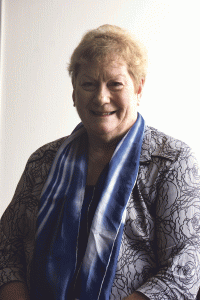December 2015
Feature
Annette Scullion
The National Council of Women of New Zealand is encouraging people to stamp out sexism and gender inequality in the release of its white paper 12 November 2015.
The paper – Enabling women’s potential – the economic, social and ethical imperative – aims to build understanding of gender inequality and spark more discussion and action (www.ncwnz.org.nz).
National President Rae Duff says gender inequality is a result of the sexism that persists in all aspects of our society, including in workplaces, schools, politics, and health. A past deputy principal for 12 years of St Catherine’s College, Kilbirnie, she says gender equality is about being respectful of both men and women so that everyone can reach their potential.
‘Most New Zealanders can recall a time when they have either experienced or witnessed sexism. Some of it is intentional but often, it is hardwired into us and is unconscious and unintentional. NCWNZ’s paper identifies how this adds up and has a profound effect on people’s choices and opportunities in life.
‘We encourage people to think about how they may be unconsciously sexist, both towards themselves and others. This includes looking at the language you use and jokes you make, and thinking about the judgements and assumptions you make of your own and others’ abilities.
‘This last year, we have set out a strategic plan to achieve specific goals and a key focus is to achieve gender equality in the workplace.
‘We are part of a global movement New Zealand is signed up to. The UN’s new Sustainable Development Goals (SDGs), introduced in September this year, include 17 SDGs to end poverty, fight inequality and injustice, and tackle climate change by 2030. Article 5 is about achieving gender equality ‒ we want to see this in New Zealand by 2020 and are calling on the government to produce a plan of action to deal with the inequalities, including making the issue a key part of policy and programme design.’
Statistics show that while women achieve 61 percent of tertiary qualifications, they are generally for lower paid industries. The gender pay gap is estimated to be between 11.8 and 14 per cent. Only 14 per cent of directors on NZX top 100 companies are women.
‘One of the key issues for is young women in their 20s saying how tired they are. We are repeatedly hearing they have to negotiate in a man’s world and should be striving for the top. But this attitude doesn’t necessarily recognise women’s goals. We need to stop stereotyping people based on gender. Gender equality is about freeing up people to be able to make their own choices for their own purposes – which makes for a healthier, happier, and more economically stronger New Zealand. We want to improve women’s representation in all areas of society – after all women’s rights are human rights.’
